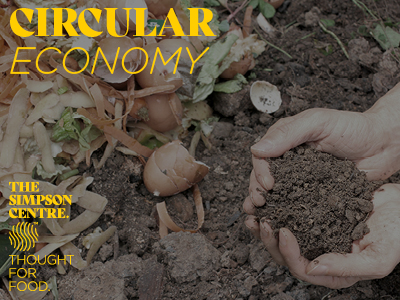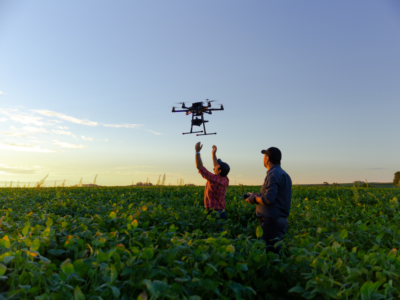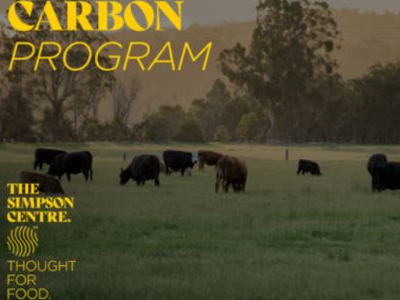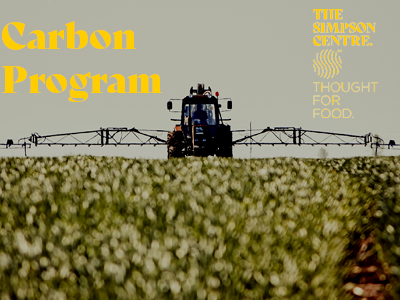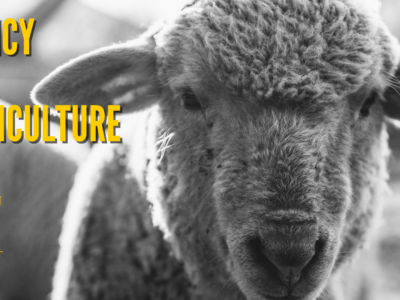Webinars
Recent Webinars
The bioeconomy is reshaping our food systems, and many Canadian farmers may not fully grasp its scale and global growth potential. We can enhance and diversify this sector by converting agricultural outputs, residues, and waste into valuable bioproducts, embracing the concept of waste as a resource. In this one-hour discussion, we aim to introduce the concept of the circular economy, an approach that aligns seamlessly with the bioeconomy. The circular economy promotes three core principles: (i) reducing waste and pollution, (ii) maintaining products and materials in use, and (iii) regenerating natural systems.
There are high expectations that the bioeconomy can significantly contribute to the sustainable development of the agro-food system. It can create new business and innovation opportunities, enhance the efficiency and productivity of natural resources, and help agriculture to adapt to climate change. In the course of this discussion, we will explore concrete examples of Canadian bioproducts derived from agricultural biomass. These examples will showcase the practical implications and possibilities that the bioeconomy presents. Moreover, we will delve into the policy opportunities that can be explored, tested, and adopted as part of the transition towards building a circular economy. By embracing these concepts, we can collectively work towards a more sustainable and resilient future for agriculture and food systems.
Wednesday, November 22, 2023
A panel discussion and knowledge exchange about the latest technological innovations used in agriculture.
The field of AgTech is rapidly growing, creating a demand for people, innovative ideas, and widespread adoption. Accordingly, it is time to update our perceptions and stereotypes about farming (!), and this session is poised to do just that. Concepts like smart farming, precision agriculture, digital agriculture, and agri-technology are revolutionizing the agricultural landscape, providing environmental benefits, reducing input costs (such as fertilizers), and enhancing profitability. The future of farming is increasingly tech-driven.
Our panelists will explore the latest trends within the AgTech sector. We’ll feature the profiles and perspectives of small to medium-sized enterprises active in this innovative ecosystem. We’ll discuss financing needs and opportunities and examine questions about the economic-policy framework for the AgTech innovation economy. There is enormous potential for adopting technology in the agriculture sector. How can we update our perceptions of farming to enable and support these innovations?
Wednesday, November 15, 2023
Canada has set a target to reduce methane emissions by 35% by 2030 compared to 2020 levels. Approximately 30% of the country’s total methane emissions stem from the agricultural sector, with beef and dairy cattle accounting for nearly all of these emissions. Canada plays a significant role as a beef exporter, and the potential additional expenses associated with methane emission reductions could impact its competitiveness in the global market. This raises the critical question of whether we can concurrently ensure the profitability of our ranches while mitigating emissions.
Thursday, October 19, 2023
Canada is committed to reducing Nitrous Oxide (N2O) emissions by 30% from 2020 levels by 2030, with the ultimate goal of achieving net zero emissions by 2050. However, achieving these targets raises concerns about the potential impact on the cost and competitiveness of Canadian agri-food products in the global market. This prompts the question of whether it is possible to meet both the objectives of feeding food for Canadians and the growing global population while simultaneously reducing emissions.
Thursday, September 14, 2023
Did you know that Canada is the world’s fifth-largest exporter of agriculture and agri-food products? The sector contributes over $135 billion to the country’s GDP and employs over 2.1 million Canadians. However, the division of responsibilities between the federal and provincial governments can be confusing and complex, which leads to challenges for farmers, industry stakeholders, and consumers alike.
Thursday, June 15, 2023
Every year, in April, Canada submits its National Inventory Report (NIR) on greenhouse gas (GHG) emissions to the United Nations Framework Convention on Climate Change. In 2022, all economic sectors posted a decline in GHG emissions between 2005 and 2020, except for agriculture, where emissions slightly increased.
Tuesday, May 02, 2023

